
The terms ‘Hinduism’ and ‘Sanatana Dharma‘ are frequently used interchangeably in contemporary times. The term ‘Sanatana Dharma’ is often associated with a particular sect or religion, but we rarely take the time to comprehend its true meaning. While ‘Dharma’ is commonly interpreted as ‘duty’, ‘religion’, or ‘religious duty’, its meaning goes beyond these concise English translations. The root of the Sanskrit word ‘Dharma’ is ‘dhri’, which means ‘to sustain’, and it also implies that which is essential and fundamental to something. ‘Sanatana’ means ‘eternal’, and the phrase ‘Sanatana Dharma’ refers to what is perpetually integral to a living entity. It is timeless, not confined by any boundaries, and not limited to any particular sect. Unlike faith, which can change, ‘Sanatana Dharma’ (commonly referred to as ‘Hinduism’ today) is unchangeable and eternal. The central theme of this article will revolve around the Hindu beliefs that are considered to be the most significant, as we explore the 10 key principles of Hinduism.
#1 There is only One Supreme Being
According to Hindu beliefs, there exists a single, timeless and infinite Supreme Being known as Bhagavan or God, who is the ultimate reality and the source of all existence. The RigVeda (1:164:45) states, “Ekam Sat Viprah Bahudha Vadanti,” which means that although sages may refer to God by different names like Rama, Vishnu, or Krishna, there is only one Absolute Truth that is the foundation of all things. God is believed to be the embodiment of eternal knowledge and joy, known as ‘Sat-chit-ananda vigraha’, and is revered as the highest authority, all-knowing, all-powerful, and omnipresent. Hindus recognize God in three distinct forms: Brahman, the universal and impersonal spiritual force; Paramatma, the localized expansion of God present in every living being’s heart; and Bhagavan, the Supreme Personality and personal form of God. The Supreme Person who lives beyond this material world and possesses six kinds of opulence in full – strength, fame, wealth, knowledge, beauty and renunciation, is God (Bhagavan).
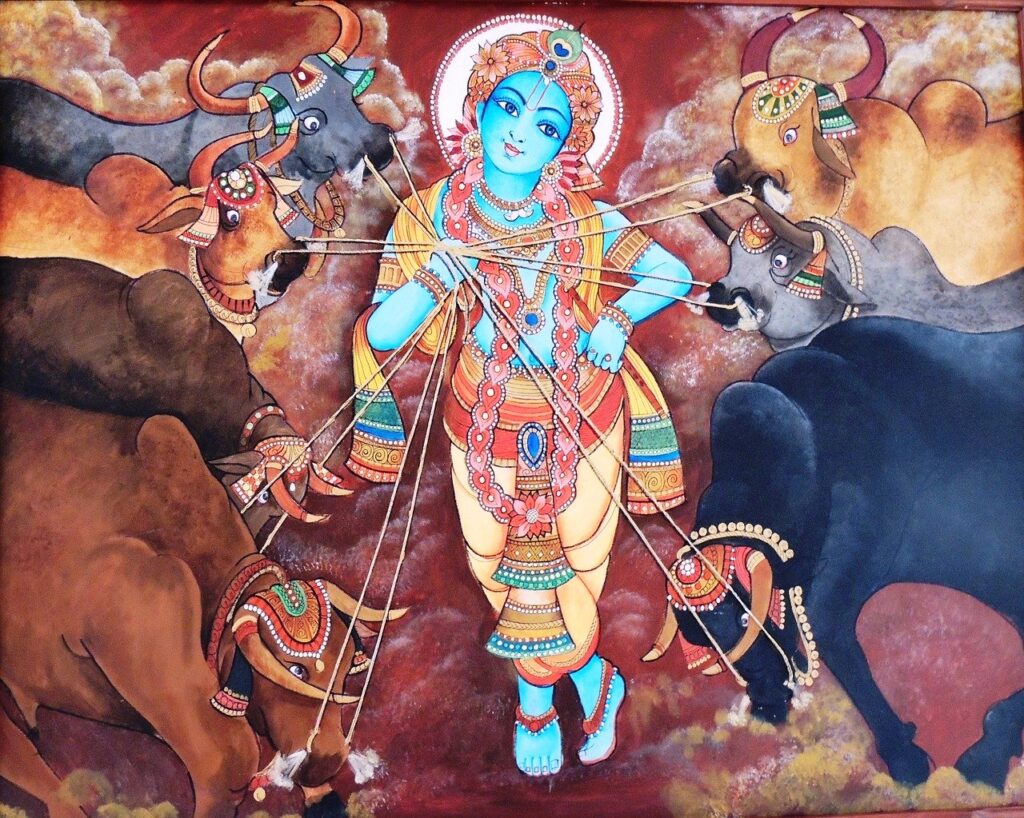
#2 Vedic Literatures are of divine origin
The Vedas are Divine knowledge and the basis or foundation of the beliefs of Hinduism. The Vedas are widely recognized as the oldest texts in Hinduism, thought to have been recorded approximately 2,500 years ago, though some traditions trace their origin back to the beginning of Kali yuga, around 3200 BC. These sacred scriptures are revered by many as the most authoritative and ancient literature in the world. Composed in Sanskrit, the Vedas originated in ancient India and were transcribed long ago, but they are believed to contain knowledge and wisdom that was passed down orally through a chain of disciplic succession for generations prior to their inscription.
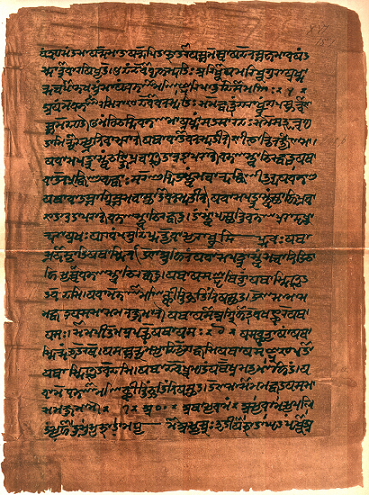
Hinduism’s vast body of literature, including the Rig, Sama, Yajur and Atharva Vedas, the Upa-Vedas, Vedangas, Shadarshanas, Upanishads, the Vedanta-Sutras, Yoga Sutras, Agamas, the Ramayana, the Mahabharata and Bhagavad-gita, as well as the Puranic literature, embodies the fundamental principles of Sanatana-dharma spiritual culture. Some of these texts were directly revealed by God, while others were written by sages who attained the deepest states of meditation to reveal universal truths. These works and their accompanying practices serve as the foundation of the Hindu spiritual tradition.
#3 Avatars of God
According to Hinduism, the Supreme Lord periodically manifests in the material world to engage with devotees, vanquish malevolent forces, and restore the principles of Sanatana Dharma. The avatars of God are not limited to any particular species and have spanned across ages. For instance, in the form of the Varaha avatar, God incarnated as a boar to slay Hiranyaksha, the demon responsible for submerging the earth in the great ocean of the universe. Similarly, the Matsya avatar, or the fish incarnation, saved the Vedas and all other living beings during the time of Universal destruction. God has appeared as a personal incarnation (avatara) in the realm of matter throughout history and even in the sound vibration of Vedic literature. While there are ten primary avatars of God, countless other expansions and manifestations also exist.
#4 We are Spirit souls
The ancient texts of Bhagavad Gita (verse 7.5) teach us that human beings, and in fact all living entities are not products of dead matter. In reality, they are constituted of a divine energy that is far superior to dull matter. The living entities are essentially spirit souls that are unborn, eternal, and ever-existing. The soul is unchangeable and indestructible. The gross body and the subtle mind are simply the coverings of the soul. Just as the material body of a living being grows from boyhood to youth to old age, similarly the soul passes onto another body at the time of death (verse 2.13). So despite the fact that our body changes continuously, or evolves with time, the soul however remains the same eternally.
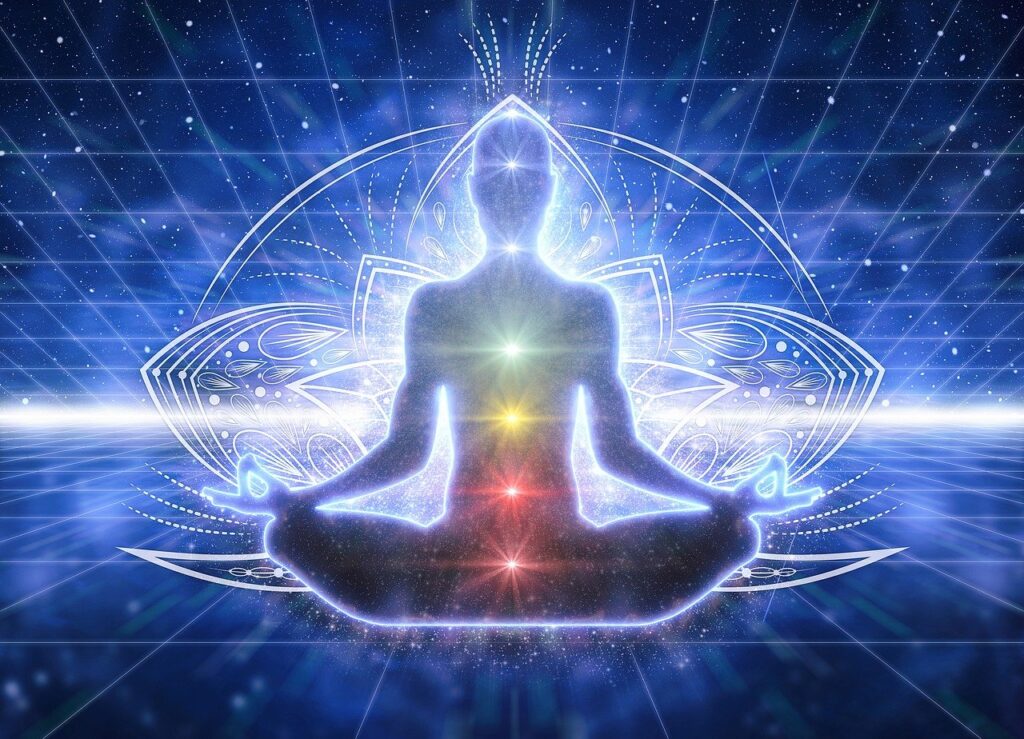
#5 Laws of Karma
The Hindu belief in the Law of Karma states that each action has a corresponding fruit that one must suffer or enjoy. ‘Karma’ encompasses actions and the spiritual principle of cause and effect. The Vedic scriptures categorize Karma into three types – Karma, Vikarma, and Akarma. Karma refers to actions that produce positive outcomes, while Vikarma relates to sinful actions with negative consequences. Akarma pertains to transcendental actions that lead to liberation from the cycle of birth and death without any karmic reactions. In the Bhagavad Gita, Lord Krishna teaches Arjuna about the concept of Akarma and encourages him to practice it.
#6 Reincarnation
According to Hindu scriptures, the soul transitions from one body to another at the time of death, similar to how a person discards old clothes for new ones. The soul is eternal, unborn, and indestructible. Depending on the Karma acquired in the previous life, one is reborn into a new body. If one has accumulated good Karma, they may be elevated to higher planes of existence or receive a better life in the material world. Conversely, if one has accrued bad Karma, they may suffer in their next life or even be reborn as an animal. This cycle of reincarnation continues until the soul achieves spiritual enlightenment and ultimately attains Moksha, at which point it returns to its natural state in the spiritual realm.
#7 Elevating Consciousness through Deity Worship and Meditation
Deity worship in Hinduism involves worshiping the eternal, fully conscious form of Bhagavan, and is not mere idol worship. The worshiper’s level of faith and devotion determines the purity and transcendental nature of the worship. Only those who have transcended material contamination and can conceptualize the pure spiritual form of the Lord are qualified to engage in deity worship. Hindus believe that the deity form of the Lord provides an opportunity for devotees to serve Him, and there are numerous examples of the deity personally reciprocating with devotees in Hinduism. For instance, the deity of Sakshi Gopala provided witness to a young brahmana’s claims, and the deity of Khirachora Gopinath in Remuna stole a pot of Khira for His devotee, Madhavendra Puri.
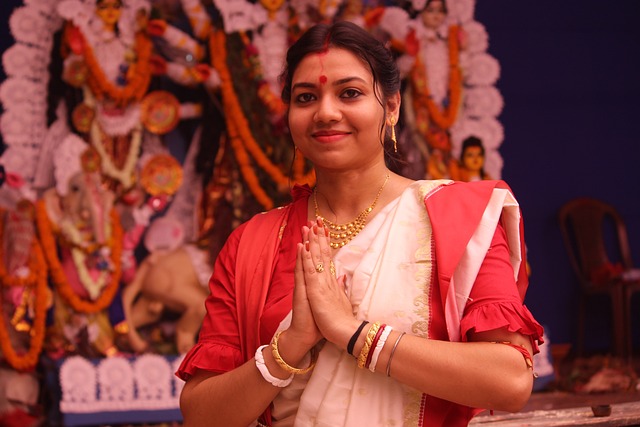
In addition to deity worship, mantra meditation is another powerful means for devotees to connect with the Supreme Lord. Mantras are sacred words or phrases that contain the holy names of the Lord and are considered to be non-different from the Lord Himself, being invested with His supreme potency. According to various Upanishads and Puranas, chanting the holy names of Lord Hari is the most effective way to purify one’s consciousness in the age of Kali. By constantly chanting and meditating upon these divine names, the devotee can gradually overcome the influence of materialistic desires and attachments and attain a higher level of spiritual consciousness. The spiritual potency of the mantra is not limited by time, place, or circumstance, and can be practiced by anyone, regardless of their social or religious background. The practice of mantra meditation has been widely recommended by saints, sages, and spiritual teachers throughout history, as a powerful tool for attaining spiritual realization and liberation from the cycle of birth and death.
#8 Need for a Bonafide Guru (Spiritual Master)
The Mukunda Upanishad states that to attain knowledge of the absolute truth, one must approach a genuine spiritual master and offer him everything necessary for sacrifice. The spiritual master must be firmly established in the absolute truth, having received it in a lineage of discipleship. The Svetasvatara Upanishad confirms that the complete understanding of the Vedas is revealed only to those great souls who possess unwavering faith in the Guru and God.
A true Guru is one who has realized the essence of the Vedic scriptures and teaches them to his disciples according to the siddhantas, or conclusions, of his spiritual lineage. Such a Guru is not interested in material wealth, fame or sense gratification, but is solely dedicated to the service of God. Like a captain of a ship, a Guru guides his disciples through the turbulent waters of material existence towards spiritual enlightenment.
#9 Four pillars of Spiritual Life
The Hindu faith holds that Spiritual life rests upon four fundamental principles known as the “four pillars.” The first pillar is Truthfulness (Satyam), which requires complete avoidance of all forms of deceitfulness. The second is Cleanliness (Saucham), which entails not only physical cleanliness but also purity of mind and thought. The third pillar is Austerity (Tapah), which involves forsaking material pleasures and attractions in pursuit of spiritual fulfillment. The fourth and final pillar is Mercy or Compassion (Dayah), which calls for treating all living beings with kindness and empathy. These four pillars form the foundation of the Hindu spiritual path, guiding individuals towards a life of honesty, purity, self-discipline, and compassion.
#10 Dharma, Artha, Kama & Moksha
Hinduism, a diverse religious tradition, caters to both material and spiritual needs, acknowledging the transient nature of material benefits while prioritizing the ultimate goal of achieving eternal moksha.
The Hindu scripture outlines four progressive aims: dharma, artha, kama, and moksha. The first, dharma, emphasizes ethical and regulated living to attain wealth, artha. With material prosperity, one may seek enjoyment of sensual pleasure, kama. However, when one realizes the futility of temporary gratification, the pursuit of liberation, or moksha, becomes the natural culmination of one’s spiritual journey. Some schools of thought, such as the bhakti tradition, recognize moksha but view the desire for personal liberation as a form of selfishness. They propose an alternative fifth goal, ‘prema’ (love of God). Thus, spiritual emancipation is the ultimate objective in Hinduism, and all other goals are stepping stones towards this end. The tradition promotes a balanced life that includes an overarching spiritual goal.
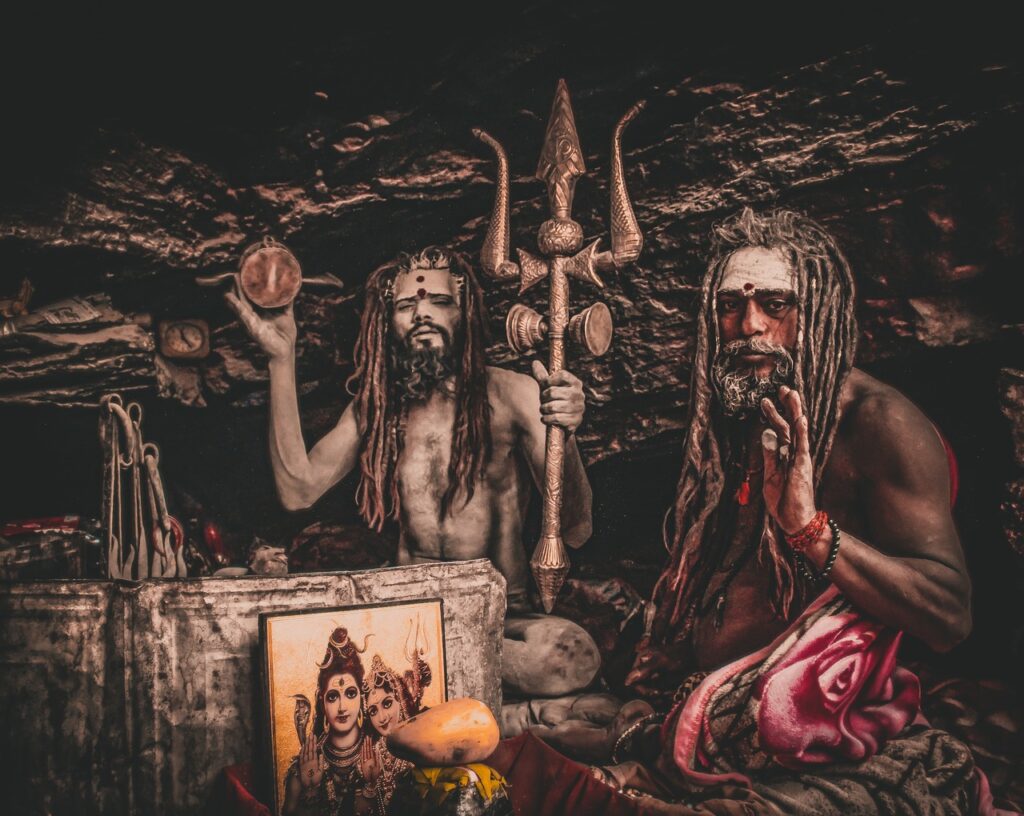
Hinduism encompasses more than just a religion; it offers a comprehensive philosophy and way of life based on universal spiritual truths. At its core is the belief that the individual soul is eternal and beyond the limitations of the body. The Vedic path recognizes that spiritual progress depends on personal qualities, choices, and abilities, providing individuals with complete freedom to choose their approach and level of understanding of the Absolute Truth. The ultimate goal of human life is to attain moksha, or liberation from material existence and a return to the transcendental realm. Hinduism emphasizes the value of all life forms and promotes peaceful coexistence with them.